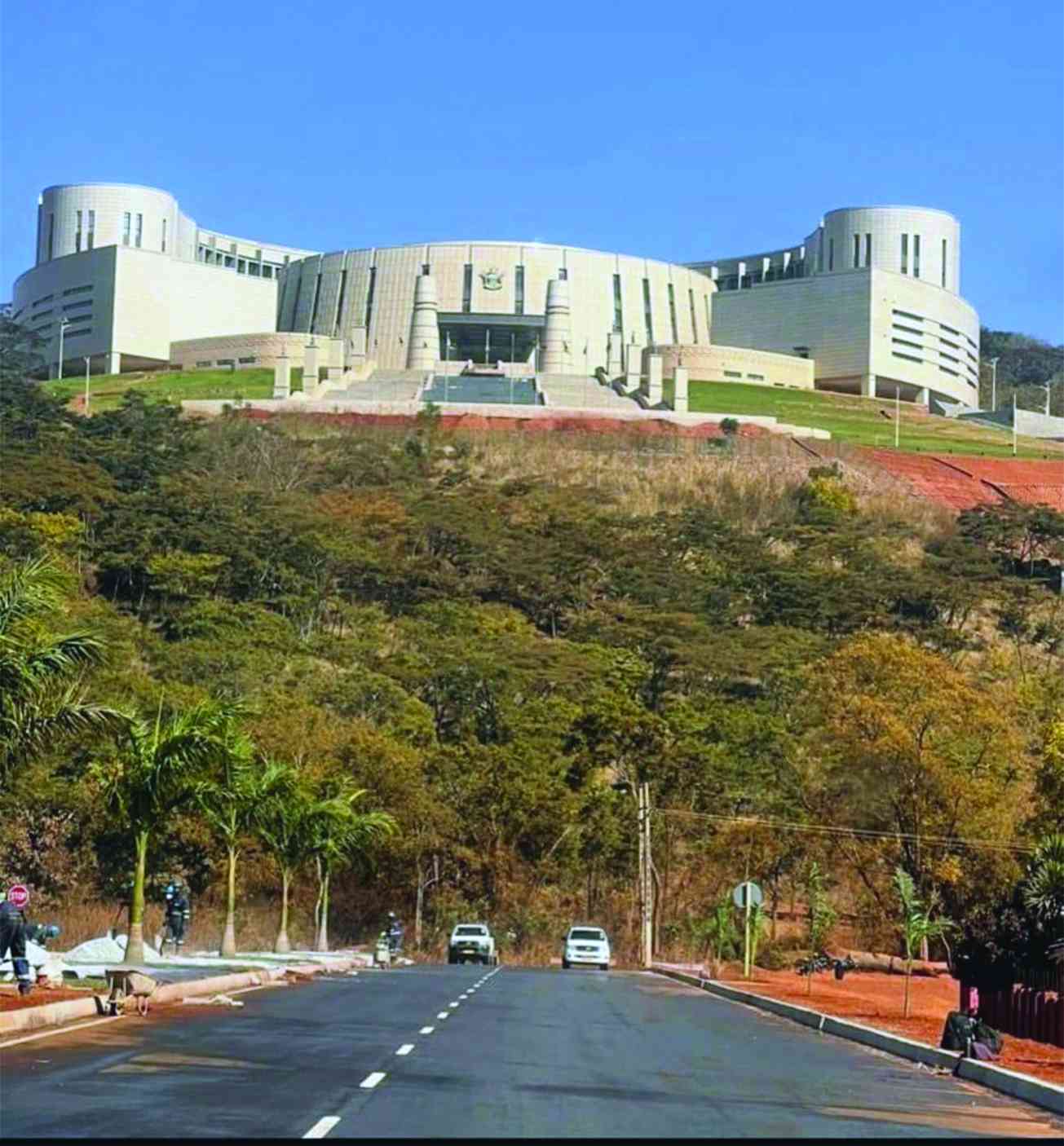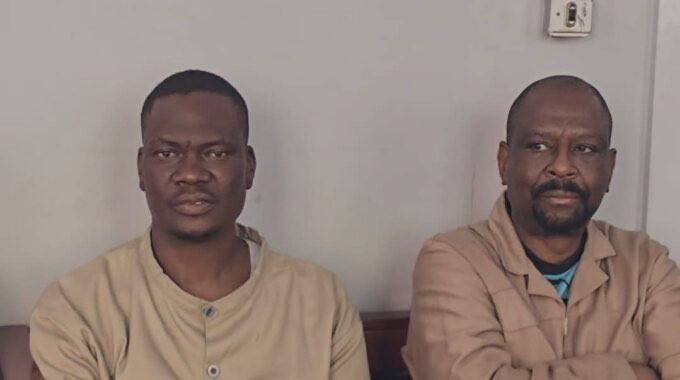
THE past few months have been a buzz of activity, especially in the capital city, Harare. Zimbabweans have witnessed hurried and often disruptive infrastructure rehabilitation projects roads, streetlights, marathon construction of luxurious villas in Mt Hampden, etc.
This has been punctuated by a constant, if not nagging reminder from government megaphones that Zimbabwe will assume the role of Chair of the Southern African Development Community (Sadc) at the summit next week to be held in Harare.
The propaganda machinery has been on overdrive, reaching even remote villages, presenting it as a triumph for President Emmerson Mnangagwa and a show of confidence in his leadership by other Sadc heads of state and government.
Of course, this role has nothing to do with our dear president, nor is it a statement of his acumen. The chairmanship of the bloc is rotational, and it so happened, through nobody’s effort, that this year it falls on Zimbabwe. But, politicians can be forgiven for instrumentalising the whole thing for propaganda purposes.
The traveling circus
These developments have gotten many Zimbabweans thinking, ‘If only we could host a Sadc summit every year’. This wish is not admiration of the virtues of Sadc or whatever it stands for, but a desperate plea for a sustained commitment to infrastructure development in the country.
The visibility of Sadc in all the member countries, like a traveling circus, is only seen in the city where the summit is held. After that, its existence fades into distant memory as the circus clowns and its trained animals move on to the next city.
In the name of Sadc
- Sadc meets over water, energy and food security
- 5 Zim cops off to South Sudan
- Opposition loses hope on reforms
- Chinese tile maker fights taxes in Zim and Zambia
Keep Reading
But, the arrival of Sadc has not only been heralded by infrastructure rehabilitation. Sadly it has also come with visible state repression and subtle suspension of citizens’ rights and freedoms. Public gatherings have been silently banned and vendors have been evicted from the streets.
Scores of opposition members, civil society leaders, and trade unionists are being rounded up, tortured, arbitrarily arrested, and denied bail. Their crime is ‘the suspicion’ that they are ‘thinking’ of organising demonstrations during the Sadc summit.
In George Orwell’s dystopian novel, 1984, the government of Oceania controls the thoughts of its citizens, and politically unacceptable thoughts are classified as ‘thoughtcrime’.
Citizens would then be removed from society to prevent them from committing the crime. It sounds ridiculous. Except, there are at least 78 activists behind bars, accused of thoughtcrime in Zimbabwe as we speak.
The government and ruling party mandarins have not been subtle about it. All in the name of Sadc!
Remember 2017?
Amidst these strange happenings in the name of Sadc, one thing is not strange - the silence of Sadc. Its complicity through silence is disturbingly familiar, and any hope that it is a bloc set up to serve the interests of the citizens is painfully misplaced.
It has always seemed more interested in maintaining artificial stability even if it means undermining democracy, looking the other way when it should make a principled stand.
During the ouster of Robert Mugabe in 2017, Zimbabweans were wary of placing their fate in the hands of Sadc and they roundly rejected its intervention.
They had no faith that it would act in the best interests of the citizens, its failures in the region had taught them a valuable lesson, and Sadc is not on your side.
The regional community should have taken heed and realised that the attitude of citizens is a sign of things wrong with the bloc.
Who’s Sadc?
Southern Africa is currently facing the worst drought in decades with millions of people facing severe food insecurity.
The citizens in the region are languishing in poverty with four of the world’s top 10 poorest countries found in the Sadc (Madagascar, Malawi, Mozambique, Democratic Republic of Congo, DRC) when looking at the GDP PPP per capita.
The region is also hit by the worst energy crisis ever, with power outages impacting the welfare of its citizens and disrupting business operations and service delivery.
Insecurity has been stoking DRC and Mozambique for quite a few years now. Many citizens have lost lives and limbs and are facing massive displacements.
The immigration crisis faced by South Africa and fuelling xenophobia has also continued without a resolution in sight.
Regional integration is still a very far cry from expectations, resolutions, and comparative observation with other blocks like East African Community (EAC) and Economic Community of West African States (Ecowas).
Amid all these, citizens in the region have not seen or felt the presence of Sadc on the ground tackling these challenges. The presence and impact of the European Union (EU) supporting efforts to resolve some of these challenges is seen and felt more than of our own regional community.
One question that lingers when making an appraisal of the regional bloc is, whose interests is it serving? Whose Sadc is it?
A stokvel of liberation movements
Applying historical institutionalism to understand the bloc is potent to unravelling whose interests it serves.
Sadc emerged from the Frontline States platform where newly independent states were coordinating and supporting the liberation of the rest of the countries in the region.
Naturally, liberation movements developed ties and enduring relationships united by their quest to defeat the colonial establishment and capture state power.
And of course, Orwellian wisdom reminds us that ‘no one ever seizes power with the intention of relinquishing it. Power is not a means; it is an end.’
So as the region became liberated, the frontline states formation morphed into Sadcc and later to Sadc.
With the task of seizing power accomplished, the grouping set on to the next task of ‘not relinquishing it’ as per Orwell’s rule book. And this is where the problem lies.
Sadc has demonstrated time and again that it is more interested in maintaining the power matrix in its member states than in uplifting the lives of its citizens.
It is a stokvel for liberation movements, where the ruling elites contribute political capital and lend it to each other when needed.
To these elites, everyone is to blame for challenges confronting the region, well except themselves, the mighty revolutionary parties.
The foreigners are the problem, the NGOs are the problem, and the opposition is the problem. Even the citizens themselves, the sovereigns of the republic, are the problem.
Why, because their legitimate demands for better lives threaten the business of ‘not relinquishing power’ by the stockholders of Sadc.
Bakalanga would say, “Kobhatisa honi kuti kuyi, mbudzi yadla nyama ngono mbgwa iliyapo” (It is embarrassing to accuse a goat of stealing meat when there is a dog in the house).
It does not matter that those who enjoy proximity to power are the authors of dissent through their plunder of state resources at the expense of development.
The regional bloc is suited more to entrenching the hegemony of liberation parties in the region.
This explains why the most prominent organ of the Sadc is the organ on Politics, Defence, and Security Cooperation.
Winter is coming
The majority of Sadc citizens growing up in the shadow of their governments’ failures, and the complicity of Sadc are youth.
They are stepping up to take leadership in the public domain and are demanding their social and economic rights.
They will at some point be at the helm of politics in the region.
If the bloc continues to see no evil, speak no evil, and call-out no evil, those feeling betrayed by the older generation and the regional bloc might take the path of Mali, Niger, and Burkina Faso.
In protest the new military rulers after undertaking a coup, withdrew from Ecowas and formed their own the Alliance of Sahel States.
They felt that the bloc did not call out the excesses of their former governments when it should have and that it colluded with the French to prop up the rule of corrupt and repressive regimes.
But was upping the ante against the new rulers who presented their actions as taking their fate into their own hands because the bloc had failed them.
The rejection of Sadc intervention by Zimbabwean citizens during the 2017 coup must send alarm bells to Gaborone, the seat of Sadc.
That winter is coming and like the Game of Thrones saga where the North remembers its betrayers, the emerging generation of post-liberation leaders will remember how Sadc failed them in their respective socio-economic and political crises.
The sober view
Sadc has grown to be the symbol of collusion of former liberation movements - an enabler for ‘the revolution to devour its own children’ to appropriate Jacques Mallet du Pan’s maxim.
But to also appropriate George Charamba’s twist to the same aphorism in his Herald column under the pen name Jamwanda, “the children will devour their revolution”.
He was commenting on the outcomes of recent elections in South Africa where the oldest liberation movement, ANC lost its majority for the first time.
That will happen in Southern Africa unless Sadc re-invents itself.
The bloc will recede into irrelevance and will be chucked by the wayside.
But until that happens, as a plebeian of no consequence, all I can say to citizens of Southern Africa and particularly Zimbabweans is: Sadc is coming, beware!
This is my sober view; I take no prisoners.
- Dumani is an independent political analyst. He writes in his personal capacity. — X: @NtandoDumani.










